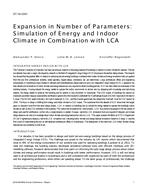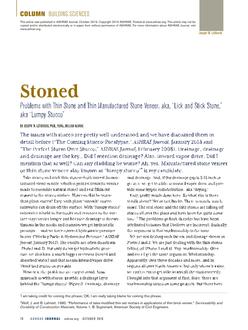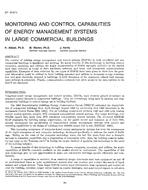The importance of predicting the total amount of mixing energy loss (ML) during a heating period in a simultaneously heated and cooled room is described within the context that estimating the building energy consumption is imperative for saving energy. Regressive models for estimating the ML have been developed based on the experimental results described in Part 1. The ML can be related to the various design/control factors of the air distribution system with sufficient accuracy for practical use. Case studies for estimating the seasonal properties of heat actually supplied to a space were conducted for a typical building in a standard climate in Japan using the dynamic heat-load calculation method, which includes a regressive model of the ML. The influences of certain factors, such as operating conditions and outside wall insulation, on the seasonal heat consumption are quantitatively discussed.
KEYWORDS: calculating, mixing, heat loss, heating season, heating, cooling, rooms, buildings, energy consumption, energy conservation, computers, models, air distribution, accuracy, case studies, Japan, heat load.
Citation: ASHRAE Transactions 1993, Vol.99, pt.1
Product Details
- Published:
- 1993
- Number of Pages:
- 14
- File Size:
- 1 file , 1.4 MB
- Product Code(s):
- D-17621


